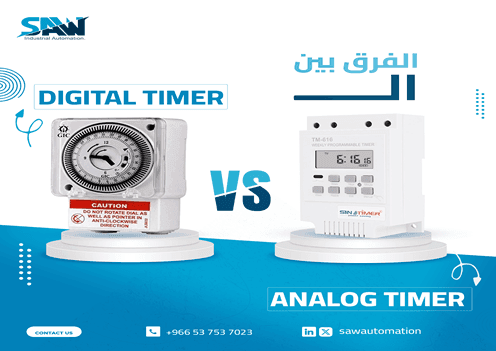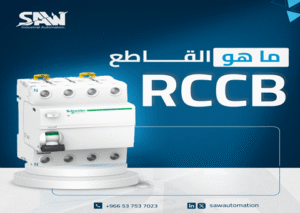The Difference between Digital Timer and Analog Timer

Difference Between the Digital Timer and the Analog Timer
The Difference between Digital Timer and Analog Timer. The difference between the digital timer and the analog timer includes multiple aspects. Each type has its own advantages and disadvantages, and understanding both is essential to determine the most suitable option for your needs. Therefore, today we will highlight the key differences between them and learn how to choose the suitable one — and which one is better.
Differences Between the Digital Timer and the Analog Timer
Timers play a crucial role in controlling scheduled switching of loads and optimizing energy consumption by turning equipment ON or OFF at specific times. Since analog and digital timers are among the most common choices, understanding their differences is important.
So, what is the difference between the digital timer and the analog timer? Here are the main differences:
Concept
The digital timer is a device used to control ON/OFF settings. It consists of digital circuits equipped with a screen to display the status of operation, supports multiple timing periods, and allows pre-programming for several months.
The analog timer — or “mechanical timer” — relies mainly on mechanical components and does not include a screen. It is manually set using rotating dials, and the maximum programming duration usually does not exceed 24 hours.
Applications
Applications differ depending on the nature of use. Analog timers are typically used in simple, low-precision applications such as:
- Turning simple household devices ON and OFF.
- Controlling lights ON/OFF.
In contrast, digital timers are used in more precise applications, including:
- Scheduling electronic devices.
- Smart cooking systems.
- Fermentation and repetitive operation processes.
Ease of Operation
Digital timers rely on buttons for setting the time, making their settings clear and easy. Analog timers require manually turning a dial, which may take longer to adjust.
Ease of Use
Digital timers feature a clearer and simpler user interface, with information displayed directly on the screen, making adjustments easier. On the other hand, analog timers require manual setting via dials and hands, resulting in less smooth use.
Accuracy
Accuracy is one of the most important differences. Digital timers rely on precise electronic programming and screens, providing highly accurate timing.
Analog timers rely entirely on manual adjustment, which may lead to slight timing variations. Therefore, their accuracy is limited compared to digital timers.
Generally, digital timers offer higher accuracy, while analog timers provide acceptable accuracy for simple applications.
Energy Consumption
Analog timers have the advantage of low energy consumption because they do not require continuous electric power — except the motorized types. Digital timers require a power source or battery.
Thus, analog timers are a practical and energy-saving choice for simple applications.
Design
The designs differ noticeably. Analog timers are usually larger because they contain mechanical parts, giving them higher durability.
Digital timers, on the other hand, feature smaller and more elegant designs suitable for home and office environments, and they better match modern devices.
Lifespan
Digital timers generally have a longer lifespan since they have no moving mechanical parts. Analog timers may experience wear over time because of their mechanical nature.
Environmental Impact
Digital timers help save energy accurately, making them more environmentally friendly. Analog timers — when not used precisely — may lead to unnecessary energy consumption.
Cost
Analog timers are less expensive and suitable for limited budgets. Digital timers cost more due to the additional features they offer.
Is the Digital Timer Better Than the Mechanical Timer?
There is no single answer for everyone — the choice depends on the application. Digital timers provide higher precision, while analog timers offer simple functionality at a low price.
Advantages of Digital Timers:
- High accuracy.
- Multiple programming options.
- Easy to use.
- Advanced features such as remote control.
- Energy-saving capability.
Advantages of Mechanical (Analog) Timers:
- Durable design.
- No electricity required to operate.
- Various usage forms.
- Economical and low cost.
The choice depends on several factors, including:
- Purpose of use
- Budget
- Required accuracy
- Operating environment
Conclusion
We can say that the difference between the digital timer and the analog timer is significant and multifaceted:
- Mechanical timers are suitable for simple applications.
- Digital timers are ideal for complex and precise applications.
The choice ultimately depends on the application’s needs, required accuracy, environment, and available budget.



